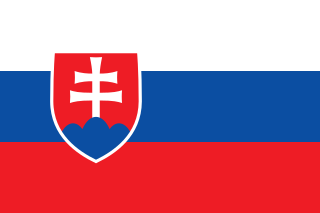
The Corruption Perceptions Index (CPI) is an index which ranks countries "by their perceived levels of public sector corruption, as determined by expert assessments and opinion surveys." The CPI generally defines corruption as an "abuse of entrusted power for private gain". The index is published annually by the non-governmental organisation Transparency International since 1995.

Corruption in Albania is a very serious problem. According to Global Corruption Barometer 2013, 66% of respondents indicated that level of corruption has increased in Albania.

Corruption in Italy is a major problem. In Transparency International's annual surveys, Italy has consistently been regarded as one of the most corrupt countries in the Eurozone. Political corruption remains a major problem particularly in Lombardy, Campania and Sicily where corruption perception is at a high level. Political parties are ranked the most corrupt institution in Italy, closely followed by public officials and Parliament, according to Transparency International's. But in the 2013 Global Corruption Barometer report, Italy is in 17th position in front of the United Kingdom (18th), Switzerland (21st) and the United States (22nd).

Corruption in Denmark is amongst the lowest in the world. According to the 2021 Corruption Perceptions Index from Transparency International, Denmark scored 88 on a scale from 0 to 100. When ranked by score, Denmark shared first place with Finland and New Zealand among the 180 countries in the Index, where the country or countries ranked first are perceived to have the most honest public sector. For comparison, the worst score was 11. The International Consortium of Investigative Journalists reported in 2014 that Denmark has consistently been in the top-4 since the publication of the first Corruption Perceptions Index report in 1995.

According to Transparency International's Global Corruption Barometer 2013, corruption is a large concern in the public sector as more than half of the surveyed households consider Parliament, police, public officials, and particularly the judiciary and political parties very corrupt.

Corruption in Switzerland describes the prevention and occurrence of corruption in Switzerland.

Corruption in Iceland describes the prevention and occurrence of corruption in Iceland.

Corruption in Latvia is examined on this page.

In 2013, a report by Transparency International revealed that political parties, Parliament, the judiciary and the military are the most corrupt institutions in Portugal. Transparency International's 2021 Corruption Perceptions Index ranks the country in 18th place out of 180 countries in the Index.

Transparency International's 2021 Corruption Perceptions Index scored Germany at 80 on a scale from 0 to 100. When ranked by score, Germany ranked 10th among the 180 countries in the Index, where the country ranked first is perceived to have the most honest public sector. For comparison, the best score was 88, and the worst score was 11.

Corruption is rare in the Netherlands in all major areas—judiciary, police, business, politics—as the country is considered one of the least corrupt within the European Union.

Corruption in the Czech Republic is considered to be widespread by a majority of the Czech public, according to Transparency International’s Global Corruption Barometer 2013.

In recent years, Montenegro has increased its efforts to implement preventive and legislative measures needed to curb corruption. For example, anti-bribery provisions in the Criminal Code, as well as laws on money laundering, conflict of interest, access to information, and political funding have all been strengthened, while awareness-raising activities and training of public officials in integrity standards have been intensified.

Corruption in Slovenia is examined on this page.

Austria has a well-developed institutional and legal system, and most corruption cases under investigation by a parliamentary committee end with judicial trials and effective judgments. However, there are several significant Austrian corruption cases which have taken place during the past decade involving land and regional officials, high-level public officials, the central government and, in one instance, the former Chancellor.

Corruption in Slovakia is a serious and ongoing problem.

According to several public surveys in Kosovo and reports from institutions such as the European Commission, levels of corruption and impunity among politicians are high.

Corruption levels are perceived to be high by surveyed residents of Serbia, and public trust in key institutions remains low.

A general public survey on corruption from Transparency International shows that citizens perceive Bosnia and Herzegovina's political structures to be deeply affected by corruption. Two-thirds of citizens believe that the government's efforts to combat corruption are ineffective.

Croatia has severe problems with corruption, and among European Union member states, it is one of the top 3 most corrupt countries.




















